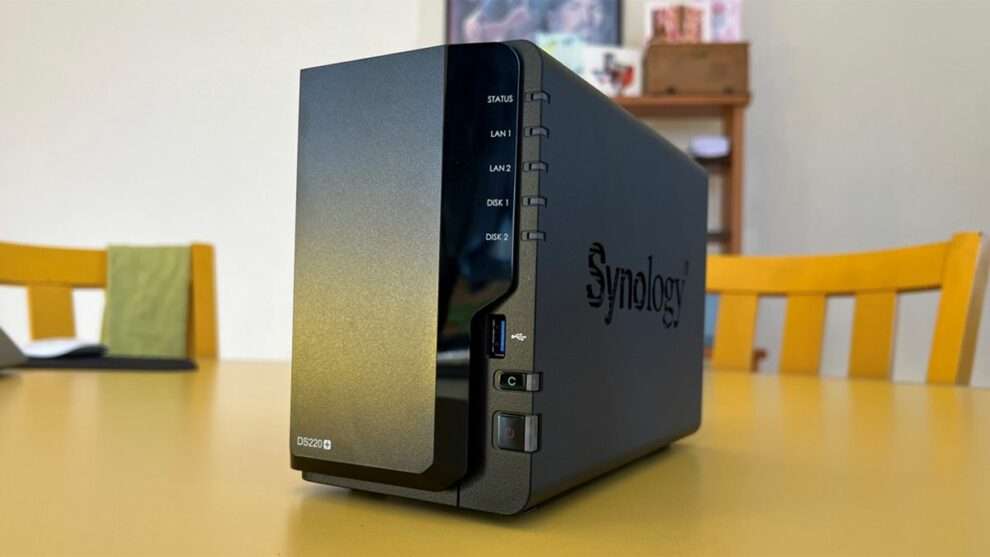In recent years, Network Attached Storage (NAS) devices have become indispensable tools for personal and professional data management. Companies like Synology have led the charge, offering robust solutions for backing up files, managing media libraries, and ensuring data redundancy. However, Synology is poised to introduce a significant change that could alter how users interact with their NAS systems. The company recently confirmed to Ars Technica that it plans to impose stricter limitations on third-party hard drives starting next year. While the move aims to enhance reliability and performance, it raises concerns about user freedom and cost implications.
What Are the New Restrictions?
Synology’s upcoming policy will primarily affect its Plus Series NAS devices scheduled for release in 2025. According to an EU press release, only Synology-branded drives and third-party drives specifically certified by the company will offer the full suite of features and support. In other words, users attempting to install non-certified drives may face limitations in functionality. These restrictions extend beyond simple usability; certain advanced features such as pooling storage between multiple disks or leveraging drive lifespan analysis through Synology’s software could become inaccessible without Synology-approved hardware.
It’s worth noting that the changes won’t apply retroactively. Existing Synology NAS devices remain unaffected, meaning current users needn’t worry about compatibility issues. Additionally, Synology’s Value-series and J-series devices, along with Plus devices released prior to 2025, will continue supporting third-party drives. Furthermore, drives migrated from older systems to newer models will retain their unrestricted status, providing some relief to those upgrading their setups.
Why Is Synology Making This Change?
Synology attributes the decision to extensive internal testing, which revealed that drives conforming to its rigorous validation processes exhibit lower risks of failure and long-term compatibility issues. The company’s reasoning echoes its official statement, emphasizing reduced compatibility problems, enhanced system reliability, and improved performance as key benefits of the new policy. From a business perspective, this approach aligns with the growing trend among tech companies to prioritize proprietary ecosystems, where hardware and software are tightly integrated for optimal functionality.
For many consumers, this rationale feels hollow. After all, the core appeal of NAS devices lies in their flexibility, allowing users to choose compatible drives based on budget and performance needs. By restricting third-party options, Synology risks alienating customers who value customization and cost savings. Moreover, the decision appears particularly ironic given Synology’s reputation for promoting open-source solutions and fostering a community-driven environment.
The Impact on Users
For enthusiasts and professionals alike, the new restrictions represent a double-edged sword. On one hand, adhering strictly to Synology-certified drives could theoretically result in more stable and efficient operations. Drives that pass Synology’s stringent tests may offer better endurance, lower failure rates, and smoother integration with the company’s software ecosystem. On the other hand, limiting user choice introduces several drawbacks.
Firstly, Synology-branded drives tend to command premium prices compared to comparable third-party alternatives. While Synology claims its certification process ensures quality, some users argue that this translates into unnecessarily high costs. Secondly, the move reduces flexibility in drive selection, forcing users to rely exclusively on Synology-approved options even if cheaper or higher-capacity drives meet their requirements. Lastly, the lack of transparency regarding Synology’s certification criteria adds another layer of complexity, leaving users uncertain about which third-party drives will remain viable in the future.
A Step Towards Monopolization?
Synology’s decision bears striking similarities to practices employed by manufacturers in other industries, such as printers locking out third-party ink cartridges via firmware updates. Although the analogy isn’t perfect, it highlights a concerning trend: tech companies increasingly prioritizing closed ecosystems over customer autonomy. By enforcing strict drive compatibility rules, Synology effectively shifts power dynamics away from end-users and toward itself. This shift could stifle innovation, reduce competition, and ultimately harm consumers by limiting access to affordable, high-quality storage solutions.
That said, Synology deserves credit for phasing in the changes gradually rather than imposing abrupt restrictions. The exclusion of older models and grandfathered drives provides a degree of continuity for existing users, minimizing immediate disruption. Still, the long-term ramifications warrant careful consideration. Will Synology eventually extend these limitations to all product lines? How will third-party vendors respond to being squeezed out of the market? And perhaps most importantly, will users accept—or resist—this encroachment on their freedom?
As Synology prepares to implement these new policies, the broader NAS community braces for change. For some, the transition marks a necessary evolution in technology, ensuring greater stability and peace of mind. For others, it represents a regressive step that undermines the very principles upon which NAS devices were built. Regardless of one’s stance, it’s clear that Synology’s actions will reverberate throughout the industry, influencing not only its own trajectory but also those of competitors.
One thing is certain: this development underscores the delicate balance between innovation and accessibility in modern tech. As companies strive to deliver cutting-edge products, they must also respect the diverse needs and preferences of their user base. Only time will tell whether Synology strikes the right chord or tips the scales too far in favor of corporate control. Until then, users must weigh the pros and cons of embracing—or rejecting—their future devices.
















Add Comment